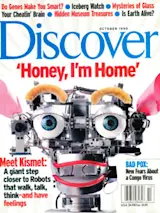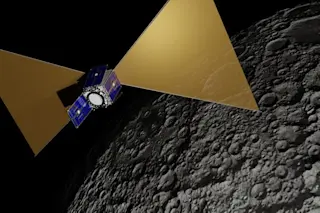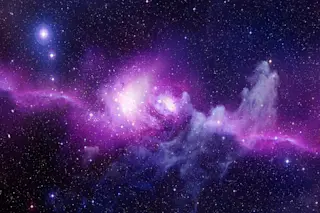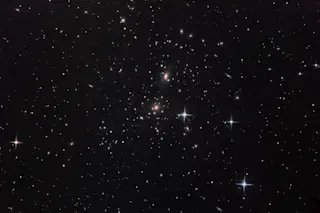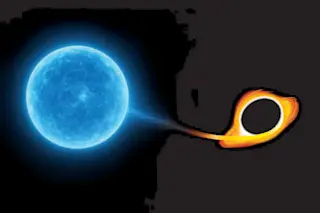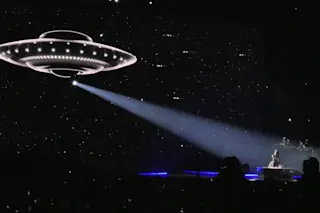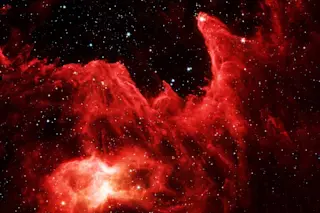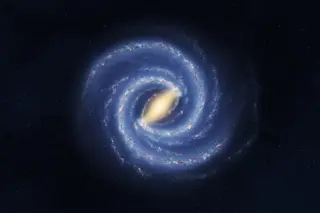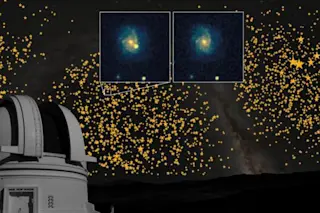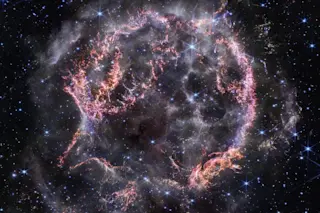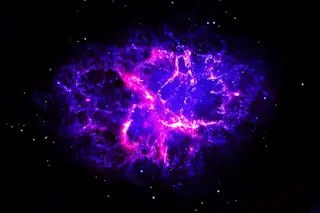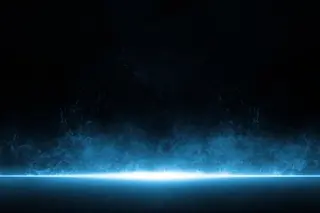For decades, some cosmological studies indicated that the universe is younger than the oldest stars, an obvious impossibility. Wendy Freedman at the Carnegie Observatories in Pasadena, California, recently used the Hubble Space Telescope to determine how quickly the universe is expanding, then ran the picture backward to figure out when it all began. Her international team estimates the cosmos is 12 billion years old--almost exactly the age of the most ancient stars.
Does this end the age debate? Before, people were arguing whether it was 10 billion or 20 billion years old. Now we're talking about differences of a billion or two.
Why is it such a hard problem? To get the age, you need to know how fast the universe is expanding, so you need velocities and distances. Measuring velocities turned out to be easy, but measuring distances turned out to be much harder than anyone anticipated. There's dust ...


